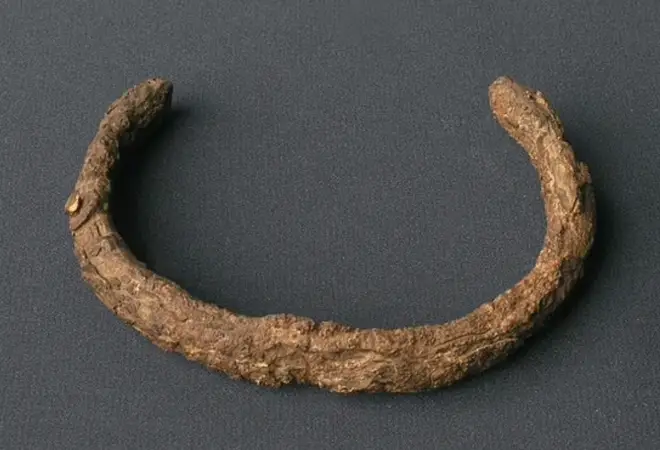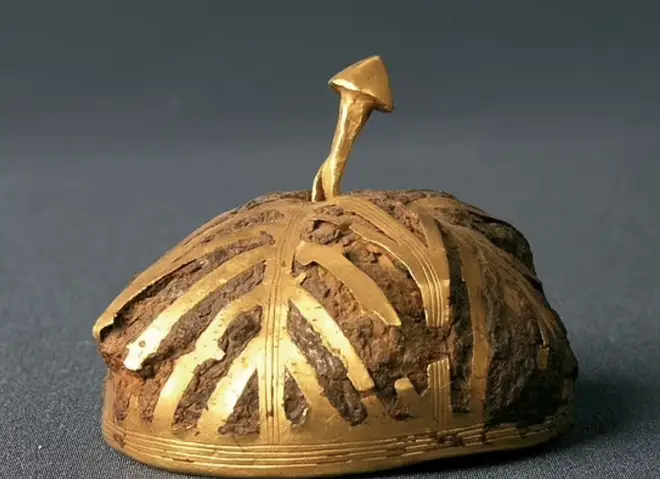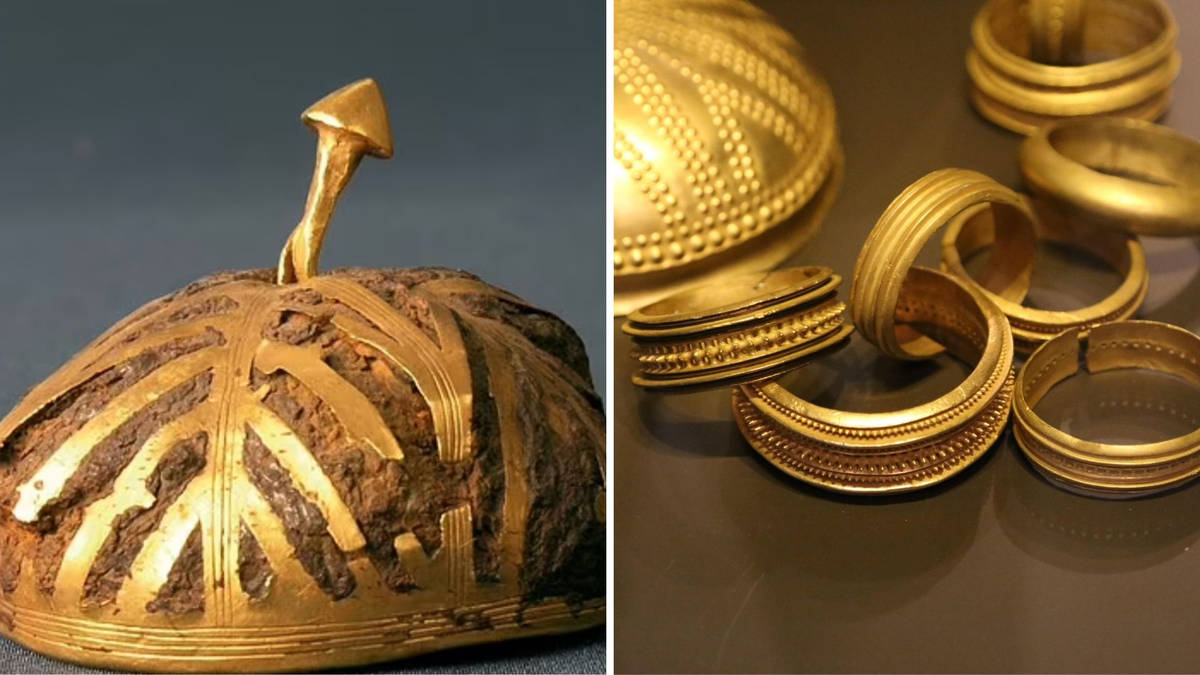9 February 2024, 19:45
Picture:
Villena Museum
Scientists have discovered ‘alien metals’ in treasure from 3,000 years ago, scientists have revealed.
The Treasure of Villenna, which contains 59 gold-plated objects, was discovered in 1963 on the Iberian Peninsula.
Analysis of the treasure has now revealed that two of the objects in the collection contain remnants of an ‘extraterrestrial’ substance, meteoric iron.
Meteoric iron is an early-universe protoplanetary disk found in iron and nickel meteorites.
The ‘extraterrestrial’ material was found in a gold-coated cap and bracelet from the collection.
The cap is made up of 5.5% of the meteoric iron, while the bracelet contains just 2.8%.
Scientists have estimated that the material is derived from a meteor that crashed into the Earth one million years ago.
Read more: Passengers’ fury as BA flight ‘almost grounded’ because seats were too comfy
Read more: Migrant electrocuted in ‘human fireball’ after climbing on top of Eurostar at Gare du Nord ‘in bid to flee to UK’

Picture:
Villena Museum

Picture:
Villena Museum
“Since they come from outer space, are composed of an iron-nickel alloy with a variable nickel composition greater than five percent by weight,’ the scientific team wrote.
“They also contain other minor and trace chemical elements, cobalt being one of the most significant.”
It is thought that fallen meteorites were often used to fashion objects thousands of years ago, as a similar artifact was discovered in the tomb of Tutankhamun.
Around 90% of the rest of the treasure trove, which likely belonged to an entire community as opposed to one royal family, was made with 23.5-carat gold.
Study senior author Ignacio Montero Ruiz, a researcher at Spain’s Institute of History, told Live Science: “The iron technology is completely different to the copper-based metallurgy and to the noble metals (gold and silver).
“So, people who started to work with meteoritic iron and later with terrestrial iron must [have had to] innovate and develop new technology.
“However, the levels of nickel in terrestrial iron are generally low or very low and frequently not detectable in analysis.”

Laura Adams is a tech enthusiast residing in the UK. Her articles cover the latest technological innovations, from AI to consumer gadgets, providing readers with a glimpse into the future of technology.










